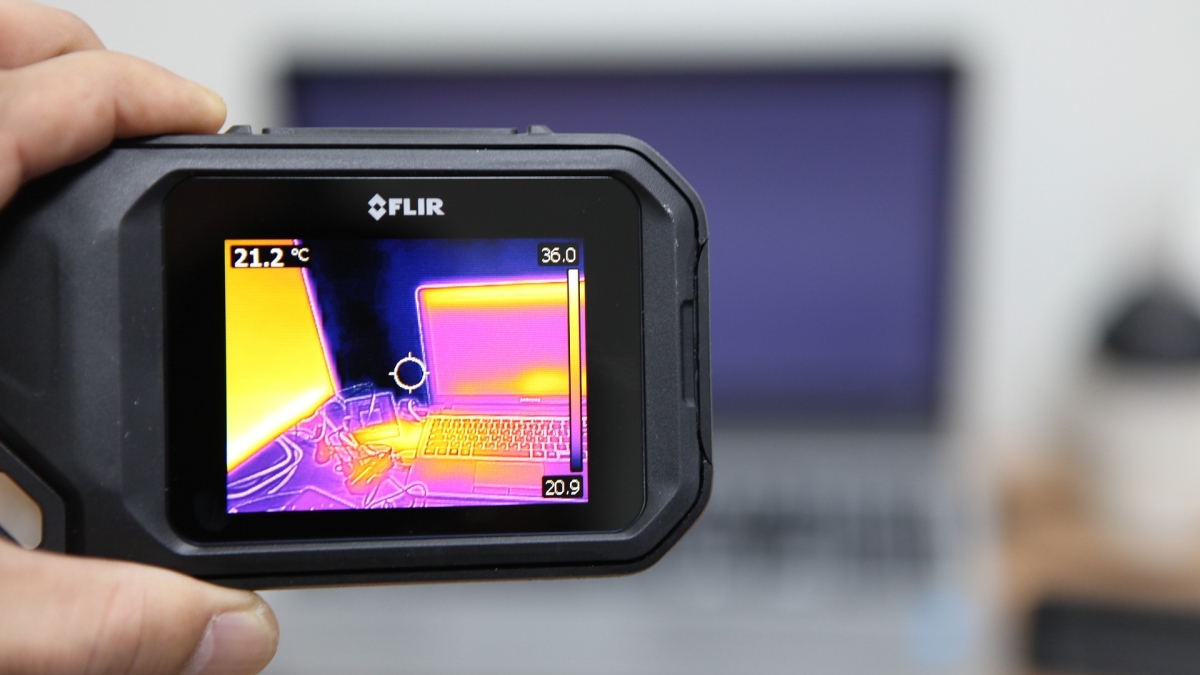Two Arizona State University undergraduates won an international hackathon competition for their idea to harness data to stop the spread of COVID-19.
Austin Brown and Hunter Silvey won the “data revolution” track of the ASU/Devex Global Student Hackathon, which was announced Dec. 10 during the 2020 Devex World virtual conference.
Their proposal, titled “A Thermal COVID Approach,” suggested combining artificial intelligence with images from internet-connected thermal cameras to predict when an area might experience an outbreak. The cameras would be mounted at high-traffic areas like grocery store entrances to collect aggregate thermal data. The algorithm would be trained to recognize patterns between spikes in the thermal data and COVID-19 testing results from the area.
“Representatives of a given area could then be given useful, accurate, real-time data about potential outbreaks in their area and be able to take measures to combat that, such as limiting occupancy or increasing social-distancing requirements or forcing lockdowns,” said Brown, who is majoring in computational mathematical sciences. Silvey is a mechanical engineering systems major.
Brown said that because the temperature data would be aggregated from everyone, individual privacy would be maintained – a key consideration and a requirement of the hackathon challenge.
Brown and Silvey competed against teams from universities around the world as part of the 2020 Devex World conference, of which ASU was a sponsor. The conference, originally scheduled to be held in person in June, instead was virtual. Devex is a media platform for development, health, humanitarian and sustainability professionals around the world.
With the virtual conference, ASU and Devex still wanted to showcase student innovation and came up with the hackathon idea, according to Stephen Feinson, associate vice president for international development at ASU.
Feinson, whose team pursues large-scale global research and training opportunities, worked on creating the hackathon with other units at ASU, including the Thunderbird School of Global Management and Devils Invent, a series of engineering design challenges.
After the pandemic hit, Anthony Kuhn, director of Devils Invent, organized several remote hackathons, so he used his expertise to develop a playbook for the other universities who were participating in the Devex event.
Students around the world, including several teams at ASU, worked through one weekend to solve one of five challenges.
“It’s easy to forget how much can be done in one day,” Kuhn said. “It shows the students how when they buckle down and don’t have to switch contexts among different classes, they can get really far in the design process in 48 hours.”
Besides ASU, the other winners were Kwame Nkrumah University of Science and Technology, Ghana; University of Sao Paulo, Brazil; De La Salle University, Philippines; and Tec de Monterrey, Mexico.
Sanjeev Khagram, director general and dean of the Thunderbird School of Global Management at ASU, spoke at the conference during a session about how the pandemic is transforming higher education around the world.
“It’s an incredible opportunity,” he said. “As with every other industry, the pandemic has only accelerated what we call the fourth industrial revolution – the digital transformation of the world.”
To scale up digital educational opportunities, universities will have to form broad partnerships with other universities, the public sector and the private sector, including technology companies.
“We all know that if there’s a single lever that can improve the chances of everyone in the world, it’s education,” he said.
Top photo of a thermal imaging camera courtesy of Pixabay.com.
More Science and technology

Science meets play: ASU researcher makes developmental science hands-on for families
On a Friday morning at the Edna Vihel Arts Center in Tempe, toddlers dip paint brushes into bright colors, decorating paper fish. Nearby, children chase bubbles and move to music, while…

ASU water polo player defends the goal — and our data
Marie Rudasics is the last line of defense.Six players advance across the pool with a single objective in mind: making sure that yellow hydrogrip ball finds its way into the net. Rudasics, goalkeeper…

Diagnosing data corruption
You are in your doctor’s office for your annual physical and you notice the change. This year, your doctor no longer has your health history in five-inch stack of paperwork fastened together with…


